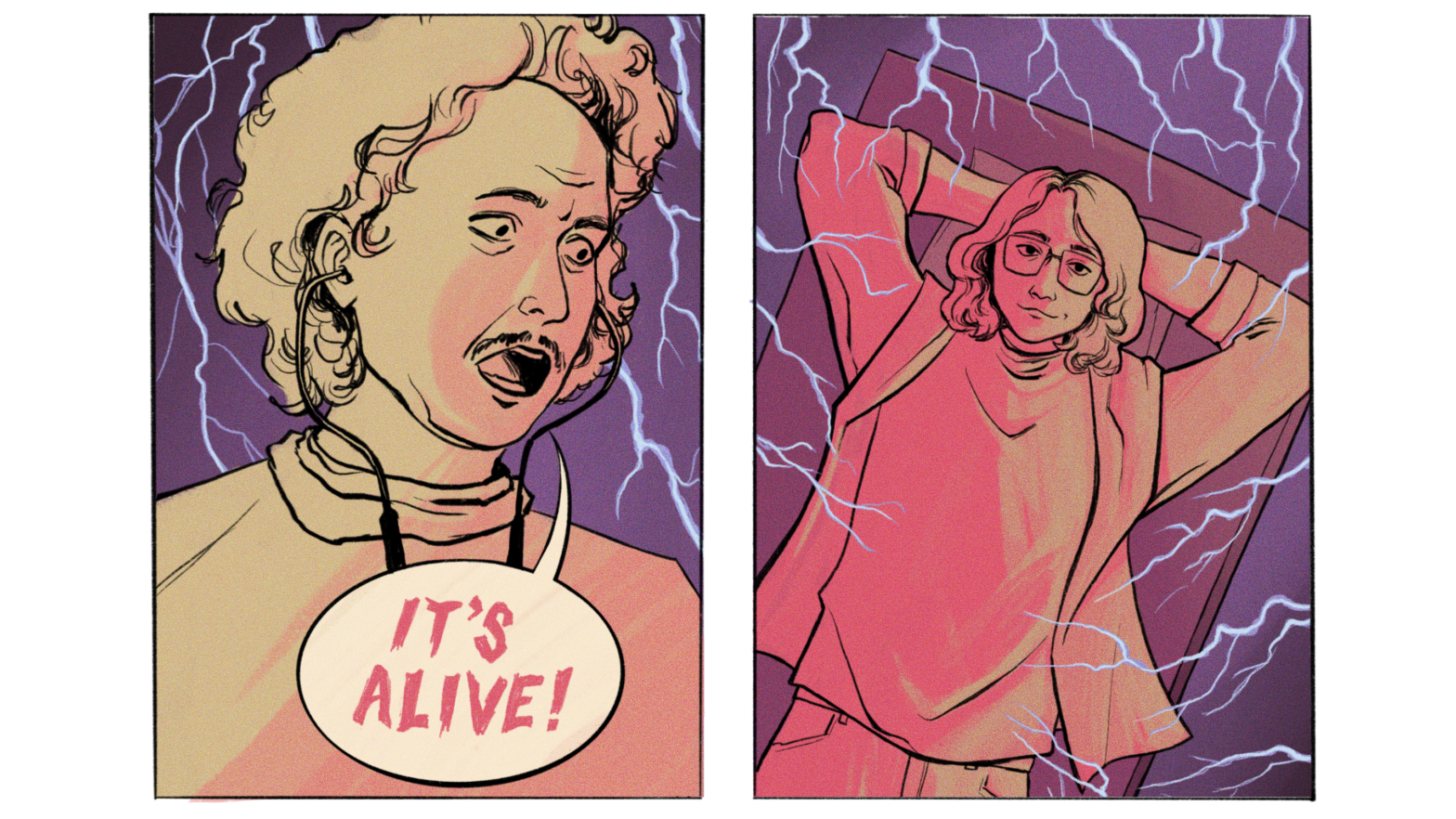“I’m sorry, but I don’t think I can call you that” is one of those phrases you wouldn’t expect from a pronoun circle in Freshman year. Yet so began my journey of the first time I came out with it/its pronouns. I wouldn’t want to dishearten anyone who might be exploring a similar path, but I admit it sucked a little. Or sucked a lot.
“I don’t think I can call you that.” They can. They won’t — key difference.
There are many reasons one would choose ‘it’ or other neopronouns — xe, zir, fae, to name a few. These choices can be one step closer to one’s truest self. It can also be fun. My goal for you, the reader, is not to come out of this article feeling guilty for any possible fraught relationship with these terms. It would be hypocritical — as a person whose identity thrives in ambiguity — to judge you for your nuanced experience. Whether you use it/its, know somebody who does, or are new to the concept, sit with me as I give you one person’s reasons for that choice.
Like the singular ‘they,’ the personal ‘it’ has been called grammatically incorrect. That’s not true. It is grammatically ambiguous. There is no clear way to distinguish a personal ‘it’ from an objective ‘it’ when a subject and object occupy the same conversation (as they so often do).
“Afi gave me the strawberry, it was sweet.” Was Afi sweet for giving the strawberry or was the strawberry sweet? Where do we go from here? Have we lost all order of a once good and proper world? Of course not. I relish in those pockets of ambiguity.
For a moment, the strawberry and I were closer than ever before. The poet in me squeals with mischief. I was a part of the objects in the scene, free to move around amongst them. The conversation has slowed down, and ambiguity has made it so. I have made a small pocket of comfort in a language that never accommodates me.
A reason against calling people ‘it’ is that ‘it’ objectifies, which is a continuous and unfortunate reality for many marginalized people. Black, Indigenous, and People of Color, queer or otherwise, have for years been subjected to objectification to end of furthering violence and oppression. This is where the key of choice comes in. I chose to use this word that had at one point been used against me and people like me. I am a child of the Global South, and queer labels of the Anglophonic world, though rich in their history, are not mine.
I make ‘it’ mine. My mother tongue of Indonesian has always granted me ambiguity (it does not use gendered pronouns) but I cannot exist as easily here. I can’t exist in conversations in a way that feels natural. What is natural? What travels without hesitation? Sunlight.
To pass as naturally as sunlight. To be as instinctive as the way it dances through a tall glass holding puddles of leftover orange juice, as simple as it glistens across buttered toast. We have studied light for centuries and our understanding of its very nature has changed, yet the existence of light is never questioned. ‘It’ is undeniably present.
The first time I realized I liked ‘it’ was simple. A friend, mimicking Dr. Frankenstein as they reenacted the famed movie adaptation, looked at me and said “It’s alive!!!” At that moment, like lightning striking the Creature and imbuing it with life, I felt ‘it.’ I felt alive.
My final reason, and it’s an important one, is that I simply want to. That feeling alone should be reason enough for respect. I want ‘it.’ The point of ‘it,’ ultimately, is that we should not deny ourselves what little desire we are granted by a world that despises our wanting. Take more than they give. Do what feels right, what feels good. My justification is verbose because I have space for it. You usually don’t get 800 words to explain your gender.
“Because I want to be called that,” is enough. It’s more than any of us could have hoped for.








Leave a Reply